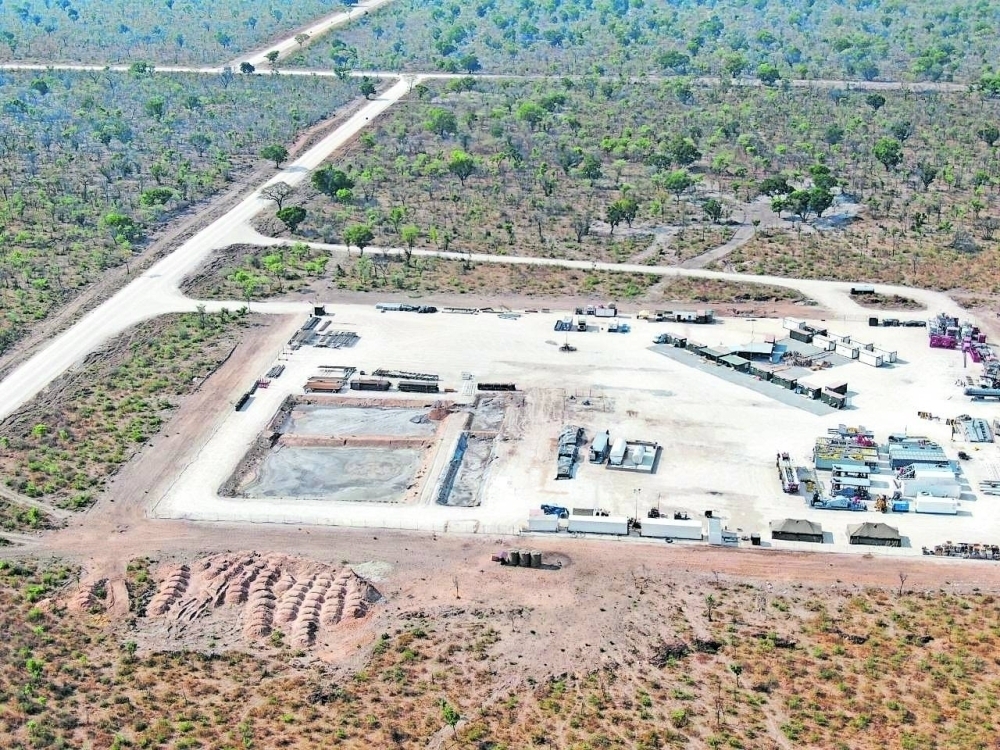Environmental review ‘riddled with errors’
Frack Free Namibia challenges environmental audit
Frack Free Namibia has criticized the draft of the environmental impact study for ReconAfrica's planned test wells in the Okavango Delta, saying that they doubt the reliability and technical knowledge of the environmental auditors.
Frack Free Namibia (FFN) voiced their concerns in a public reaction to a draft (dSR) compiled by environmental auditor Dr Sindila Mwiya of Risk-Based Solutions, who conducted multiple impact assessments for ReconAfrica.FFN says the evaluation was incorrect in six aspects which they say testify to insufficient expertise – starting with uncertain use of designations and technical terms, since the draft uses geological and drilling method terms unclearly or even incorrectly.
“The dSR is full of confusing and undefined terminology and nomenclature,” FFN says. For example, the term “Kavango Sedimentary Basin” is used, “although it is terminology created by ReconAfrica to support speculation that their geological model is factual. In fact, the term by the South African Committee on Stratigraphy is not recognised and the existence of the Kavango Sedimentary Basin has not been proven and independently verified.”
Environmental concerns ignored
Secondly, the environmental auditors only slightly touched on the fact that new roads and other infrastructure would have to be built in addition to the drilling, which would have an adverse effect on the environment.
“The number of pits, location, circumference and depth were not given. These facilities not only have a direct impact on the adjacent fauna and flora, but also on the communities living in the area. The proposed environmental impact assessment cannot be conclusive without proper consideration of these facilities,” FFN says.
Furthermore: “The location, length and width of the roads leading to the boreholes and working pits are also not dealt with in detail. The omission of these critical aspects in the dSR and the proposed Environmental Impact Assessment represents a serious flaw in the process.”
In addition, Risk-Based Solutions states in the draft that no gas flares will be used by ReconAfrica because the planned test wells are “stratigraphic test drilling”. This is simply incorrect, since it is contrary to “test drilling” and “exploration drilling”. In areas where there is no infrastructure for storing gas and oil, such as in the Kavango regions, gas flares (or gas flaring) can occur.
Third, the draft fundamentally fails to explain how oil and gas exploration activities would affect flora and fauna due to the inevitable destruction and fragmentation of habitats. Studies suggested that the valuable ecosystem of the Okavango would be severely disturbed by interventions.
“Only through scientifically sound studies of the viable population densities of individual species can the impact of proposed exploration activities be properly assessed. The dSR contains no reference to corresponding studies.”
Further criticism
In a fourth point of criticism, the draft testifies to the lack of understanding of the environmental auditors for hydrological issues.
The environmental auditors claim that test drilling is taking place in the Omatako-Omuramba river basins, from which no water has flowed into the Okavango for 50 years. “The very limited timeline of the EAP is worrying as it demonstrates a serious lack of understanding of the potential future implications of current oil and gas exploration.”
FFN quotes geohydrologist Dr Surina Esterhuyse from the South African Free State University, who said that contamination of the Omuramba Omatako will definitely have an impact on the Okavango. The Omatako transports water to the Okavango via rainfall. Toxic substances would certainly flow from one river into the other, even if not via direct tributaries.
Moratorium on drilling called for
Dr Mwiya, representing ReconAfrica, claims in the draft that in the Kavango-Zambezi Transfrontier Park (KAZA) only international and regional historically privileged stakeholders benefit from the tourism industry, while local communities, including in Namibia, still remain in poverty. This statement was not checked for its truthfulness in the study.
Finally, Frack Free Namibia added that ReconAfrica has a proven track record of relying on high-risk financial methods but promotes success in the media, which poses a great risk to investors.
FFN concludes from its many points of criticism that the draft assessment is fatally flawed and must therefore be withdrawn and all drilling activities in the Kavango regions stopped.
“A moratorium on all phases of Reconnaissance Africa Namibia's exploration must be enforced pending a transboundary strategic environmental assessment that considers the potential cumulative impacts of oil and gas activities within the PEL 73 prospect and beyond.”




